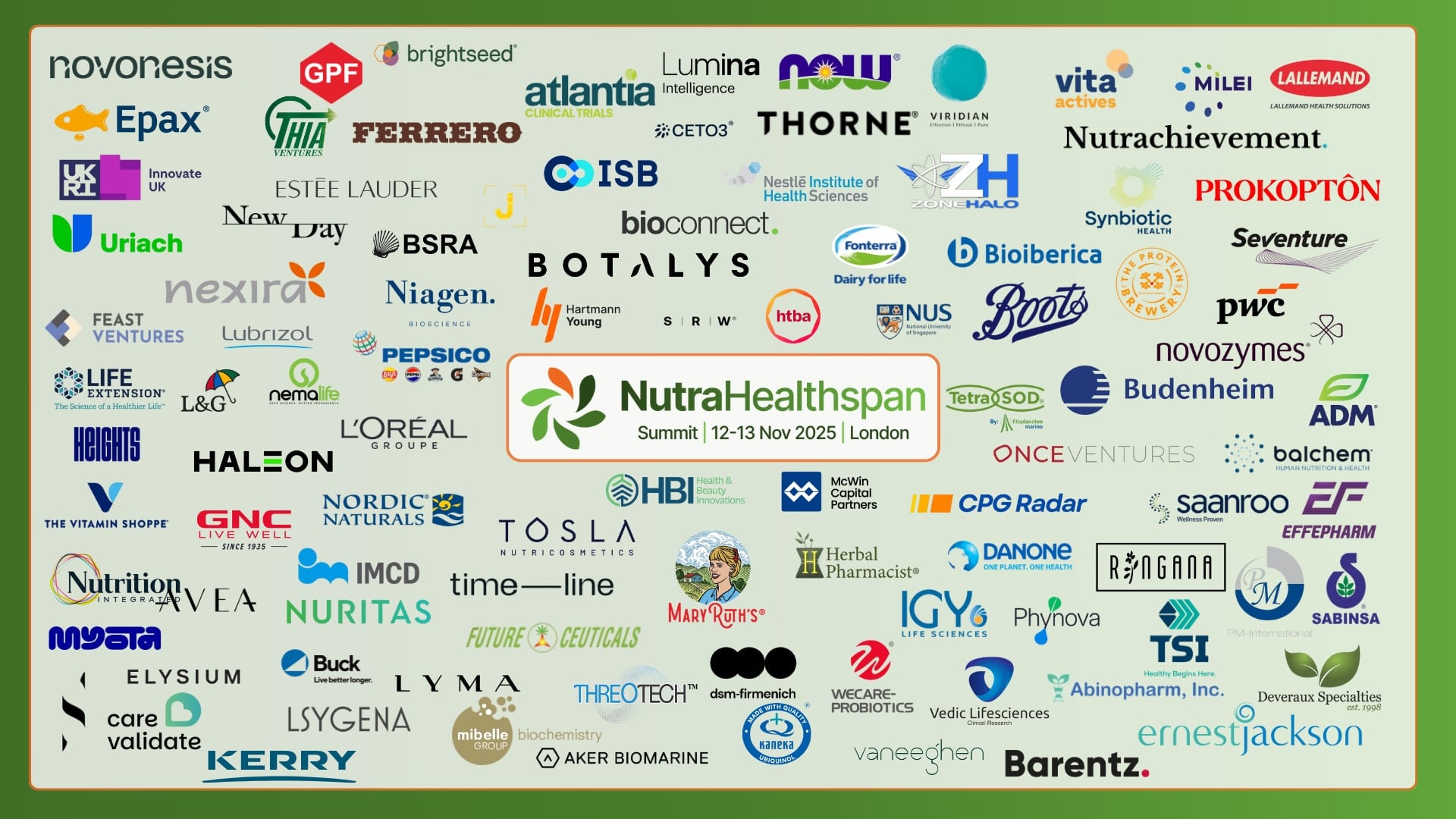Speaking to NutraIngredients ahead of his on-stage appearance at the upcoming inaugural Nutra Healthspan Summit in London (Nov. 12-13), David Weinkove, chair of the British Society for Research on Ageing (BSRA) and Durham University Professor, said the Summit will align with two of the Society’s key visions: Connecting scientists together and enabling translation of research.
Creating science with real-world impact
The BSRA aims to encourage and support research that ultimately helps people slow biological aging. To that end, the organization is building its connections with a number of disease-focused associations in order to help ensure that advances in healthy aging research translate to real-world applications.
“It’s important we work with people focused on prevention of diseases because, clearly, if you can slow aging then you can prevent diseases,” Professor Weinkove said.
The Society is collaborating, or in discussion, with a growing number of charities in specific fields, such as Cystic Fibrosis Trust, Arthritis UK and Royal Osteoporosis Society.
Weinkove noted that while treatment advances have allowed many people with certain diseases to live longer, a lack of research about how these conditions aging individuals is creating new challenges. These are challenges that the BSRA is “uniquely placed to help solve.”
The professor, who is also chief scientific officer and co-founder of Magnitude Biosciences, noted that disease-focused charities tend to put more resources into treatment research.
“Cancer Research UK spends £8 million on prevention of cancer which sounds like a lot, but that accounts for just two per cent of their total budget!“ he said. ”Prevention is so important because if you can prevent one disease, chances are you will prevent another disease as a result.”
While he is resolute that preventative nutrition strategies can have multiple real world implications, he said “the problem is proving it.”
Challenges in prevention research
When researching nutraceuticals which aim to prevent aging and reduce disease risk, studies need large samples and long intervention timeframes, which come with a high resource demand.
“We have to give everyone the intervention, and we have to wait for long enough for some participants to get the disease or suffer the health issue,” professor Weinkove explained, adding that using an older or at-risk sample is a popular option for reducing the number of participants and time required.
“But the challenge there is the older you get, the more variation between individuals increases so that means you need to have quite a big sample size to get good data,”
Alongside these barriers, Weinkove claimed it is harder to raise money for aging research than it is to raise funds for specific diseases, “despite the fact aging impacts everyone and is a risk factor for most diseases.”
Discussing how the Nutra Healthspan Summit could support longevity research initiatives, he added: “I’m keen to explore ways that different companies in the field could get together to prove these things work. I want to talk to people from industry but there’s some very good academic speakers as well that I want to link up with. I’m pleased there’s a broad spectrum of people interested in aging at different levels of industry.”
Bringing academia and industry together
The Nutra Healthspan Summit will deliver cutting-edge science alongside business strategy in the quest to extend healthspan through nutrition and supplements.
This must-attend event will cut through the noise and hype to deliver actionable insights from the world’s leading scientists, brands and innovators in cellular ageing.
Professor Weinkove will join a panel discussion focused on the hallmarks of aging involving experts: Trygve Bergeland, director of nutrition science at Balchem, Dr Lee Chae, co-founder at Brightseed, and David Foreman, The Herbal Pharmacist.
The professor will challenge panelists to consider the dangers of focusing on specific biomarkers and instead highlight the importance of the overarching outcomes, consumer experience and perception of health.
Building a community of researchers
The British Society for Research on Ageing (BSRA) aims to encourage and support research that will ultimately help people slow biological aging and thereby remain healthier and free of disease for longer. Establised in 1939, the association has grown into a UK-wide research network and charity with the vision of using aging research to improve people’s health.
The charity has five key visions:
- Enabling translation of research by relevant stakeholders including industry developing interventions, clinicians and public health practitioners.
- Connecting scientists together to support each other and discuss the best research avenues to understand and slow human biological aging.
- Engaging the general public on what we know about the biology of aging and need for further evidence-based research.
- Advocating for more funding for high quality research on aging through engagement with policy makers and key opinion leaders.
- Raising money to provide grants to support excellent research into aging.





